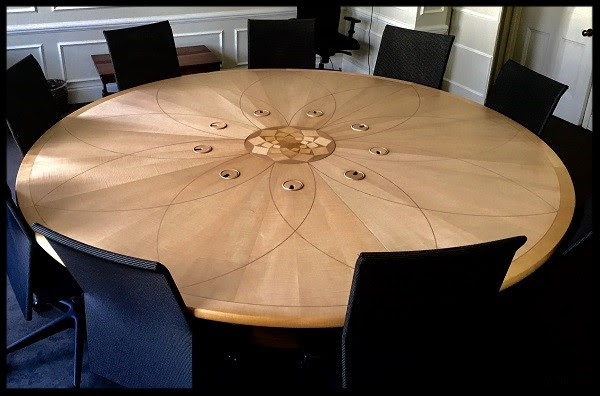From the Table of the National Spiritual Assembly
11 June 2020
8 Núr 177 B.E.

GC-34901
Download as a PDF
Contents:
The challenge of COVID-19
Overcoming racism
Using social media
Training for Local Spiritual Assemblies
Systematising the work of the National Spiritual Assembly
Service opportunity: Register of Bahá’í graves
Elevate: new URL and content
Conversations on social cohesion gather momentum in Australia since pandemic
Escalation of persecution of Bahá’ís in Iran
Dearly loved Friends,
The National Spiritual Assembly is pleased to share with you some of the subjects upon which it has been reflecting at its most recent meetings, including during its much valued consultations with Counsellor Shirin Fozdar-Foroudi.
The challenge of COVID-19
The challenges posed by the coronavirus pandemic have resulted in the Bahá’í community worldwide rising up with energy and imagination. The National Spiritual Assembly continues to meet by Zoom. In addition to its main monthly meetings, the National Assembly decided at the beginning of lockdown to also meet weekly on Tuesday evenings to consult about any situations that might arise as a result of the pandemic. As the lockdown begins to ease, the Assembly will soon be reducing the frequency of these additional meetings to fortnightly.
Overcoming racism
The recent media focus on the relentless racism and racial injustice experienced by so many people from the black and minority ethnic communities across the world has heightened our sense of sadness at this continuing injustice. The National Spiritual Assembly has been giving deep thought to this question as part of its reading of the reality of the United Kingdom and its continuing consideration of the spiritual health of the community. A recent consultation with a group of friends, who have been studying racism and its impacts, has greatly assisted the Assembly’s understanding of the nature of racism, whether deliberate or unthinking, and the challenges faced by some of the friends in their daily lives both within and outside the Bahá’í community.
As part of its reflection, the National Assembly has been studying and reflecting upon a letter dated 10 April 2011 – written on behalf of the Universal House of Justice to an individual – on the theme of promoting racial unity. The letter addresses the unique approach that the Bahá’í community takes to addressing the question of racism within society, focussing on the unifying powers and overarching vision of a new kind of society. Referring to the Bahá’í community, it states that:
…. Even if such a community were to focus the entirety of its resources on the problem of racial prejudice, even if it were able to heal itself to some extent of that cancerous affliction, in the face of such a monumental social challenge the impact would be inconsequential. Therefore, the friends must effectively assess the forces at work in their society and, beginning in neighborhoods and clusters, contribute their share to the process of learning and systematization which, as their numbers, knowledge, and influence grow, will transform their lives, families, and communities. Only if the efforts to eradicate the bane of prejudice are coherent with the full range of the community’s affairs, only if they arise naturally within the systematic pattern of expansion, community building, and involvement with society, will the … believers expand their capacity, year after year and decade after decade, to make their mark on their community and society and contribute to the high aim set for the Bahá’ís by ‘Abdu’l-Bahá to eliminate racial prejudice from the face of the earth.
The letter thus makes it clear that ultimately the cure for the ills of humanity is to be found in pursuit of the Plan, at the heart of which is the transformational Word of God disseminated systematically through the training institute. As we work together with others, our understanding of prejudices and how to build unity will deepen. The guidance further suggests that initial development can happen in Bahá’í communities within a specific population’s own milieu so that
every activity can take a form most suited to the culture and interests of the population, so that new believers can be quickened and confirmed in a nurturing and familiar environment, until they are able to offer their share to the resolution of the challenges faced by a growing Bahá’í community.
The National Assembly will, of course, continue to view the matters on which it consults through the lens of unity and justice, bearing in mind these words from the Universal House of Justice’s Ridván 2016 message to the Bahá’ís of the World:
Far from disheartening you, let the world’s prejudices and hostilities be reminders of how urgently souls all around you need the healing balm that you alone can present to them.
Using social media
Members of the National Spiritual Assembly were excited to take part in a recent webinar which explored the use of social media as a means of reaching out to local populations. More than 80 friends – including Counsellor Shirin Fozdar-Foroudi, Auxiliary Board members, members of Regional Bahá’í Councils, the Office of Public Affairs, and other already involved in a number of social media outreach projects – took part in the webinar. The session started with study and reflection on guidance from the Universal House of Justice before moving on to inspiring and informative presentations from online outreach and teaching projects in Brussels, York and Oxford. In each case, systems are being developed to use social media to reach out to large numbers of local inhabitants, inviting them to participate in online devotional events, firesides, or spaces for elevated conversations, leading to an invitation to join in community building activities and the necessary training for such services provided by the institute courses. For example, the content of one of the firesides is based on quotations from Unit 1 of Book 1, creating a joyous and spiritually uplifting environment which encouraged souls to join a Book 1 study circle. In Brussels, for example, a new Book 1 group starts every two weeks!
The webinar concluded with encouragement to everyone not to be “blinded by the science”, to take small steps, to reflect with others in the field and to approach online teaching in a spirit of learning.
Training for Local Spiritual Assemblies
Local Spiritual Assemblies have a vital role in the successful execution of the Plan and the achievement of the goals. Regional Bahá’í Councils are best placed to support Local Assemblies and they have been giving increasing attention to this in recent months. Raising the capacity of the officers of Local Assemblies was the subject of recent consultation between the National Assembly and Counsellor Shirin Fozdar-Foroudi. What is clear is that it is not adequate to focus on administrative matters only in any such training; the exigencies of growth have to be at the heart of any such consideration. In order to explore this subject further, the National Assembly will be consulting with Regional Councils and Auxiliary Board members to consider next steps.
Systematising the work of the National Spiritual Assembly
In its message dated 29 December 2015 addressed to the Conference of the Continental Boards of Counsellors, the Universal House of Justice wrote:
As the capacity of the friends increases and the size of a community grows, the work of a National Assembly in its manifold dimensions becomes commensurately more complex. Therefore, and in view of the magnitude of the task before the institutions in the coming Plan, National Assemblies—as well as Councils—will benefit from periodically considering, in collaboration with you, whether their administrative operations, and indeed elements of their own functioning, could be adjusted or enhanced in ways that would better support the growth process.
Over the past year, the National Spiritual Assembly has consulted regularly about how to enhance its functioning and its administrative operations and has developed a framework for systematising all areas of its work, including expansion and consolidation. In relation to the latter, further reflection took place at the National Assembly’s June meeting, focusing on the need to strengthen the means of providing the Assembly with cogent analysis of progress in the Plan across all regions.
*
The National Assembly continues to pray at each of its monthly meetings for the entire Bahá’í community, and by name for those who are facing particular tests or challenges. Please also pray for the National Assembly that its efforts may be blessed by the confirmations of Bahá’u’lláh.
With loving Bahá’í greetings,
Patrick O’Mara,
Secretary

For some years now, a project has been gathering information to create a comprehensive database of the graves of all believers and Bahá’í-owned grave plots in the UK, the Channel Islands and the Isle of Man. The National Assembly is now looking for a few friends to carry forward the responsibility of gathering information to update and maintain the list. If you are interested in volunteering for this important area of service, please contact nsa@bahai.org.uk.

Elevate, a collection of resources to support a growing movement to create greater spiritual consciousness, has moved to a new permanent address: https://www.elevateworld.org/
Collections of prayers, readings and inspirational materials to use in devotional gatherings and inspire elevated conversation and action are now available on the topics of Change, Overcoming Racism, Mental Health, Joy, Wellness, Hope, Friendship, Patience, Strength and Gratitude.
www.elevateworld.org • @elevate.world • facebook.com/elevatewrld
Click here for the latest international news from the Bahá’í World News Service
To register a change to your personal information, please use the form here.
Continue reading